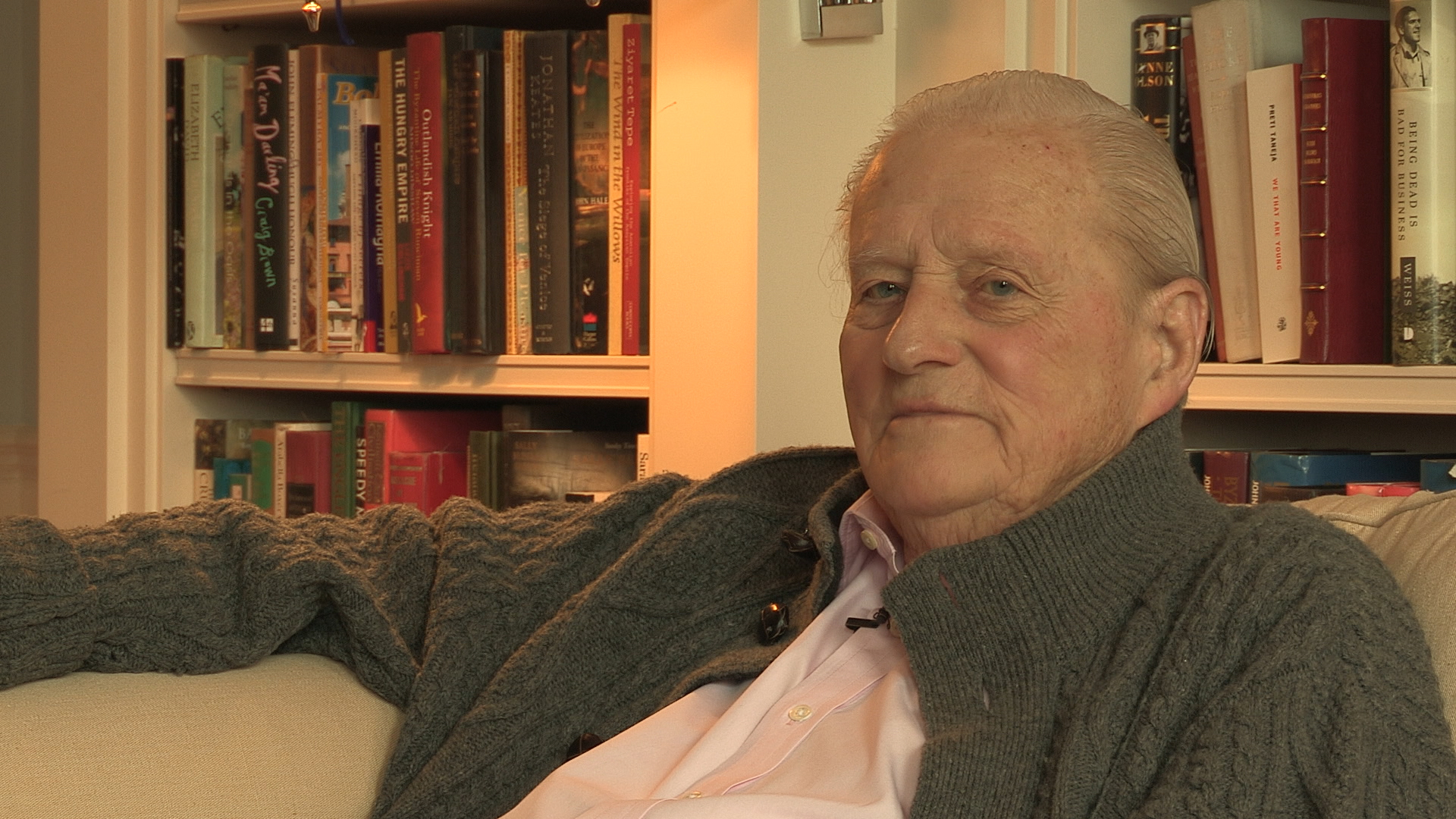NEXT STORY

Raimund von Hofmannsthal
RELATED STORIES

NEXT STORY

Raimund von Hofmannsthal
RELATED STORIES


|
Views | Duration | |
|---|---|---|---|
| 121. Becoming a peer of the realm | 49 | 03:15 | |
| 122. Choosing a political affiliation | 43 | 02:04 | |
| 123. Long live democracy | 45 | 01:23 | |
| 124. My grandfather – a rather special doctor | 59 | 02:36 | |
| 125. My father's military exploits | 49 | 03:38 | |
| 126. Chronicles of a time gone by | 55 | 03:41 | |
| 127. Conrad Russell, the Gothic farmer | 48 | 02:47 | |
| 128. Raimund von Hofmannsthal | 54 | 05:01 | |
| 129. Cecil Beaton | 66 | 02:06 | |
| 130. Rex Whistler's capriccio painting at Plas Newydd | 56 | 03:40 |


Conrad Russell was a great figure, both in my mother's life and in mine. He was a tall, very tall, thick white hair, always dressed in a Prince of Wales checked suit, and he was a farmer. My mother always called him 'the Gothic farmer' because he did somehow look like a Gothic saint. He fell in love with my mother, as so many people did, in, I should think, probably about 1930 or something. It never turned into an affair of any kind. I think Conrad was completely sexless. He didn't want it and my mother didn't want it, but they were tremendous friends. He had a nervous breakdown in youth, I think, and he'd been told to lead a very quiet life, so he'd bought a little farm at Mells in Somerset and there he lived as a bachelor and there he read voraciously. There was nothing he hadn't read and did the Times crossword every day and I think he was probably one of the most erudite men I ever knew. There seemed to be absolutely nothing that Conrad didn't know, but he also had a wonderful sense of humour and he wrote marvellously funny letters to my mother almost every day, many beautiful letters, some of them had been published. Not by me. It's probably too late now, but I should... I would love somebody, actually, to publish his letters to her, because they are marvellous.
When she started running her little farm, of course, he was absolutely invaluable to her, because she didn't know anything about farming and he knew everything about it, so he used to take the train from Mells to Bognor once a week and stayed for two or three nights and told my mum how to make cheese and show her how to cut the kale and, you know, all those endless things. So, he was very much a part of our lives in those days. My father was frequently there too, but quite often he was working very, very hard. He would stay in London during the week and only come back at weekends, in which case Conrad would just move in, you know. But, as I say, you know, in a completely sexless manner, I'm absolutely certain of that. And he was a darling man and we all loved him. He was a strange, curious figure, very lonely in a way, I suppose, but great fun.
John Julius Norwich (1929-2018) was an English popular historian, travel writer and television personality. He was educated at Upper Canada College, Toronto, at Eton, at the University of Strasbourg and on the lower deck of the Royal Navy before taking a degree in French and Russian at New College, Oxford. He then spent twelve years in H.M. Foreign Service, with posts at the Embassies in Belgrade and Beirut and at the Disarmament Conference in Geneva. In 1964 he resigned to become a writer. He is the author of histories of Norman Sicily, the Republic of Venice, the Byzantine Empire and, most recently, 'The Popes: A History'. He also wrote on architecture, music and the history plays of Shakespeare, and presented some thirty historical documentaries on BBC Television.
Title: Conrad Russell, the Gothic farmer
Listeners: Christopher Sykes
Christopher Sykes is an independent documentary producer who has made a number of films about science and scientists for BBC TV, Channel Four, and PBS.
Tags: Conrad Russell
Duration: 2 minutes, 47 seconds
Date story recorded: 2017
Date story went live: 03 October 2018